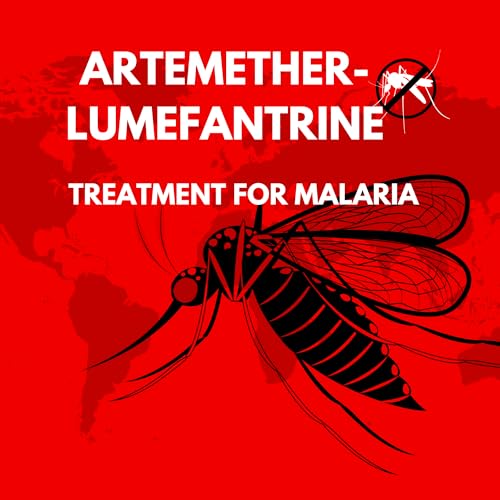
Confronting Malaria: The Efficacy of Artemether-Lumefantrine Under Threat
Échec de l'ajout au panier.
Échec de l'ajout à la liste d'envies.
Échec de la suppression de la liste d’envies.
Échec du suivi du balado
Ne plus suivre le balado a échoué
-
Narrateur(s):
-
Auteur(s):
À propos de cet audio
Today, we engage in a profound examination of a formidable global health challenge: malaria. This disease, particularly driven by the Plasmodium falciparum parasite, remains a persistent adversary, especially within sub-Saharan Africa. Our primary focus is on Artemether-Lumefantrine, commonly known by its brand name, Cortem, which has served as a cornerstone in malaria treatment for decades. However, emerging signs of resistance and practical challenges associated with its administration necessitate a critical analysis of its current efficacy. Through recent scientific studies and insights into patient compliance, we aim to unravel the complexities surrounding this vital medication and its role in the ongoing battle against malaria.
The dialogue we engage in delves into the persistent and complex global health challenge posed by malaria, a disease caused by the parasite Plasmodium falciparum, particularly prevalent in sub-Saharan Africa. Within this context, we cast a spotlight on Artemether-Lumefantrine, known by its commercial designation, Cortem. This antimalarial drug has indisputably served as a cornerstone in the management of malaria, with billions of doses dispensed worldwide, yet we now find ourselves confronting emergent signs of resistance that threaten its efficacy. The discussion seeks to elucidate the current state of Artemether-Lumefantrine’s effectiveness, drawing upon recent scientific studies and clinical data to reveal the multifaceted dimensions of its application, including the intricacies of dosing, adherence, and the critical implications of patient behavior on therapeutic outcomes.
At the heart of our examination lies the pharmacological action of Artemether and Lumefantrine, whose synergistic properties have rendered them indispensable in the fight against malaria. Artemether acts swiftly to eliminate parasites within the bloodstream, while Lumefantrine prolongs the drug's effects, thus reducing the likelihood of treatment failure. However, the successful implementation of this combination therapy is fraught with challenges, particularly regarding the precise timing of doses and the necessity of food intake to enhance drug absorption. We underscore the importance of patient education, as noncompliance can lead to significant treatment failures, necessitating a concerted effort from healthcare professionals to convey the complexities involved in the regimen. Additionally, we explore the potential adverse effects associated with Artemether-Lumefantrine, particularly in patients with pre-existing medical conditions or those on medications that may interact negatively with the treatment.
As we broaden our scope to encompass the evolving landscape of malaria treatment, we confront the disconcerting trends indicating a decline in Artemether-Lumefantrine efficacy, particularly in regions characterized by high malaria prevalence. Recent studies have highlighted an alarming increase in the prevalence of genetic markers associated with drug resistance, notably the PFMDR1 gene, which poses a formidable challenge to ongoing malaria control efforts. This underscores the urgent need for a reevaluation of treatment strategies, including the potential exploration of alternative therapies or combinations that might mitigate the risks associated with resistance. Ultimately, our discussion serves as both an informative analysis of the current state of malaria treatment and a rallying call for a comprehensive approach that integrates rigorous scientific research with practical patient care strategies, ensuring that we continue to combat this enduring global health menace effectively.
Takeaways:
- The global health challenge of malaria remains persistent, particularly in sub-Saharan Africa, where we must adapt our strategies continuously.
- Artemether-lumefantrine serves as a principal antimalarial agent, yet emerging resistance poses significant risks to its...


